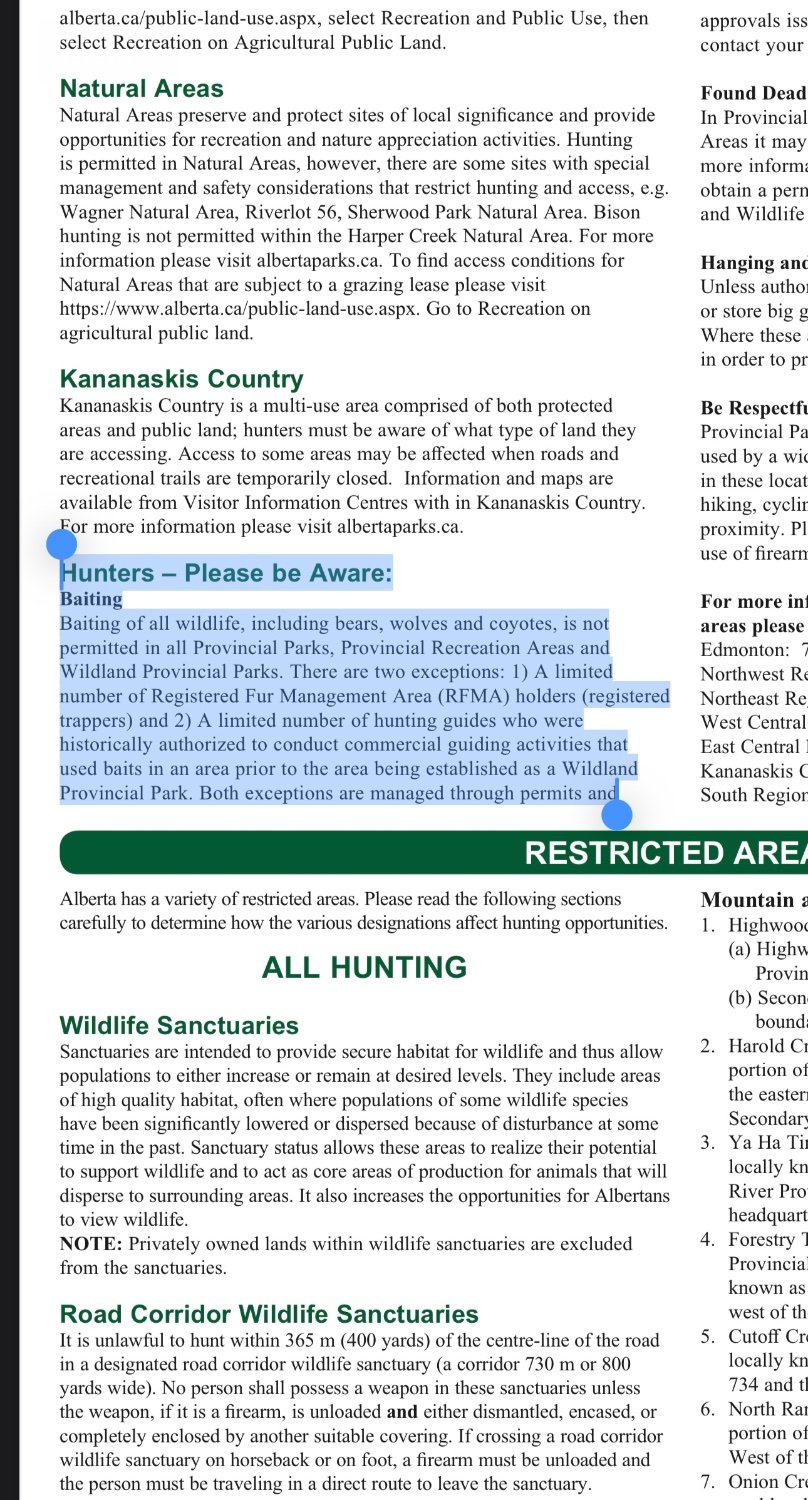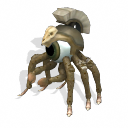- cross-posted to:
- [email protected]
- cross-posted to:
- [email protected]
Parks Canada is warning drivers not to stop while on highways to let moose lick their cars this winter.
The peculiar message comes as moose have been trekking onto highways to lick salt off of roads and passing vehicles, says Tracy McKay with Parks Canada.
“It does sound very funny … It’s okay to laugh at it, as long as people drive responsibly and do what’s best for the wildlife,” she said.
McKay says Parks Canada puts out a warning every winter as moose venture down to highways to fuel their salt intake.
“Unfortunately, this kind of puts [moose] at risk of being injured or killed if they get hit by a vehicle,” she said.
“Parks Canada understands that seeing those wildlife is a real highlight for a lot of people, but we ask people not to stop … so that the moose can’t get used to licking salt off of the cars.”
This might be a crazy idea, but has the Canadian government tried putting out troughs filled with salt, so the moose stop going to the roads as much? There’s got to be all kinds of crap in the road salt (particles of rubber and metal at least, settled exhaust particulates, etc) that’s bad for the animals, and probably much more concentrated than usual because they’re licking the asphalt too.
It’d probably come with its own set of problems, of course, but I’m not sure they’re be worse than the existing ones.
Baiting animals for hunting is illegal. Sending the wrong message and would need to be super careful where you put them so they aren’t in hunting zones.
Well, it would not be to bait them for hunting, so I’m not sure how baiting laws would be relevant here? If someone were to suggest that’s the intention, then I suppose it’s only reasonable to say that salting the roads is also bait and thus illegal 🤷
That was one of the potential problems I thought of, though. Not being a forestry expert I’m not sure of a solution (other than being really careful where you put them like you said!), but it does seem that salty roads cause the same problem in that moose will group up there to eat salt. Only now they’re being killed by vehicles, too (not to mention making the roads icier, and the economic damage of crashes).
I should also disclaim that I don’t live in Canada and I’ve never seen a moose in real life (I hear they’re quite large, they sound scary tbh). This is just an armchair thought that seemed like it might work to solve the problem of moose licking roads in the winter.
Is it just illegal in Canada? Every hunter I know, American and Canadian, baits deer
Just because they do it doesn’t mean it’s legal…

Got the link? That site seems AB specific. Also, I just want to be clear that I’m not defending their behaviour in any way
That is for Alberta specifically, each province would have their own rules you would need to look up individually.
That’s only in parks, there’s nothing about baiting on private property.
Sorry would have been better to post this one

It is illegal, but it is done.
I do know some who play on the edge of the rules tho, like planting clover in small patches (which deer love munching on).
In Ontario if you get caught using salt licks there are heavy fines and charges. But in many of the more remote wildlife management areas you can purchase multiple deer tags (for population control, and the fact that moose and deer don’t get along > deer push moose out of traditional areas).
I’ve lived in remote Ontario areas and I can’t tell you how often I’ve come around a blind rock-cut corner only to find 4 moose 50’ ahead, kneeling in the road licking salt.
I wish we could either switch to straight sand or find an environmentally sound option vs salt.
Agreed. Not only are moose drawn to the roadside, but we’re salinating our lakes and rivers 🫤
They usually lick cars in parking lots.
A moose once licked my sister.
Møøse licks can be nasty, you know…
But he hardly knew her!
That’s always good advice, about not letting moose lick your car - if moose are licking your car, it may be sign you’re approaching a bit too close. Once at yellowstone I was driving to the campground and a bison walked up to my car and stood there blocking the passenger door. It was close enough to feel it brushing the side of the car. And there’s not much you can do but let it do whatever it’s gonna do.
You need to loudly state that you do not consent to the animal licking your car (or standing in your door’s personal space). Then they either get the idea and move on, ignore you, or go into a vicious rage.
Or just stomp on you and make you into a pancake. I don’t think anyone should really ever get that close to a wild animal on purpose, sometimes it happens but you just don’t know what that animal will do. Especially with bison or moose - keep your distance if possible.
Well, that’s a brand new sentence.
Only in Canada, eh?
Maybe Parks Canada could put a bunch of salt licks out in the forest away from the roads?
$27 on Amazon. They make them for horses, sheep and cattle, why not moose?
I had the funny mental image of some intern at Parks Canada getting ahold of the Amazon account and putting in an order for 20,000 salt cubes for $27 each when they have literal metric truckloads of it already at bulk prices.
They have truckloads of it, but not in a lickable form factor. :)
Any form factor is lickable…
So we gotta start mixing road salt with something super bitter and gross to animals but environmentally friendly, and not more expensive than salt.
In Germany and Austria, there was a tax on salt for cooking until recently (1993 and 1995, respectively). To avoid that people buy the cheap road salt and use it for cooking, such a bitter component was actually added, usually magnesium chloride (sometimes also capsaicin).
Many German sources still say you shouldn’t eat road salt for that reason, so maybe this is still done (though it is of course possible, that those sources are just outdated).Road salt isn’t processed as much and therefore isn’t safe for human consumption, at least some places are like this.
This reminds me of how during Prohibition in the United States, bootleggers started using industrial and medical alcohol to get around the ban. In response, the US government forced manufacturers to add poisons to all alcohol not meant for drinking. Over ten thousand people died, but hey, at least the Prohibitionists got to feel smugly superior, right?
This is the best summary I could come up with:
The peculiar message comes as moose have been trekking onto highways to lick salt off of roads and passing vehicles, says Tracy McKay with Parks Canada.
McKay says Parks Canada puts out a warning every winter as moose venture down to highways to fuel their salt intake.
Roy Rea, an assistant professor at the University of Northern British Columbia, has been studying moose for 25 years, particularly why they come close to transportation corridors.
Rea says the large creatures search for salt in the winter because they need a lot of sodium to maintain their bodily functions.
With December and January being the darkest and often coldest months, Rea is warning drivers to be extra cautious while driving on highways.
“There’s been a few projects in various places that have tried salt alternatives, but they tend to be more expensive or they don’t work as well or both,” she said, adding the warning is a way to preserve Canada’s moose population.
The original article contains 553 words, the summary contains 159 words. Saved 71%. I’m a bot and I’m open source!
Feeling called out by this. I mean those cars are tasty.
I’d be interested to hear how your supposed to stop the moose once it’s decided its going to lick your car.
I think Parks Canada is saying cars shouldn’t stop if/when they see moose either on or beside the road.
Doing 15-20 kms per hr going past them should be enough to deter the moose from licking the vehicle while in the middle of the highway.
Better yet quit covering the roads with salt, which corrodes vehicles and is bad for waterways.
Salt is the most effective and less damaging treatment for icy roads.
This isn’t world news
Oh man, there’s a lot of people in Canada about to be real upset to find out they’re not part of the world anymore.







